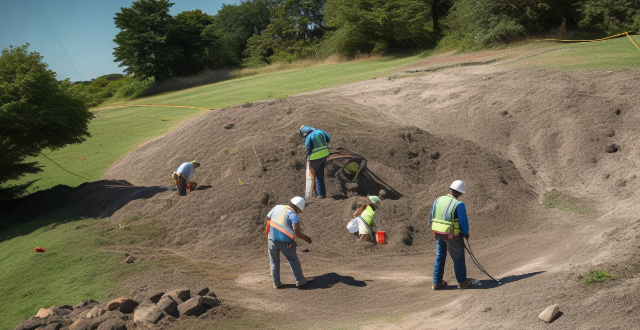The article discusses the safety considerations for staying in or evacuating a high-rise building during an earthquake. It outlines the advantages and disadvantages of both options, such as structural integrity, risk of falling debris, and access to emergency services. The decision should be based on factors like the severity of the earthquake, the building's structural integrity, and available safety precautions. Being prepared with an emergency kit and knowledge of proper safety procedures is crucial for ensuring well-being during these events.

Is it safer to stay in a high-rise building during an earthquake or evacuate?
When an earthquake strikes, the question of whether to stay in a high-rise building or evacuate can be a matter of life and death. The answer depends on several factors, including the severity of the earthquake, the structural integrity of the building, and the availability of safe evacuation routes. In this article, we will explore both options and provide guidance on how to make the best decision for your safety.
Staying in a High-Rise Building
Advantages:
1. Structural Integrity: High-rise buildings are designed to withstand seismic activity, and their height can actually help absorb some of the earthquake's energy. This means that staying inside may be safer than trying to navigate potentially damaged streets and roads.
2. Avoid Falling Debris: If you evacuate, you risk being hit by falling debris from other buildings or structures. By staying inside, you reduce this risk.
3. Protection from Aftershocks: Aftershocks can occur minutes, hours, or even days after the initial earthquake. Staying in a high-rise building provides a level of protection from these subsequent events.
Disadvantages:
1. Panic and Overcrowding: In a high-rise building, there may be hundreds or even thousands of people trying to evacuate at once, leading to panic and overcrowding on stairwells and exits.
2. Limited Evacuation Options: If the building suffers significant damage, evacuation options may be limited, trapping occupants inside.
3. Lack of Access to Emergency Services: During an earthquake, emergency services may be overwhelmed, and access to medical attention could be delayed if you remain in the building.
Evacuating a High-Rise Building
Advantages:
1. Avoiding Building Collapse: If the building is not designed to withstand the earthquake's force, staying inside could result in injury or death if the structure collapses.
2. Access to Open Spaces: Evacuating allows you to move to open spaces away from potential hazards like power lines, gas leaks, and broken water mains.
3. Immediate Medical Attention: If injured during the earthquake, evacuating may provide quicker access to medical attention and first responders.
Disadvantages:
1. Risk of Falling Debris: As mentioned earlier, evacuating increases your exposure to falling debris from nearby structures.
2. Challenges in Navigating Damaged Streets: Roads and walkways may be impassable due to debris, making it difficult to reach safe areas.
3. Increased Risk of Injury: In the chaos of an evacuation, there is a higher risk of injury due to crowding, falls, and other accidents.
Making the Decision
When deciding whether to stay in a high-rise building or evacuate during an earthquake, consider the following factors:
- Severity of the Earthquake: A minor tremor may not warrant evacuation, while a strong one certainly does. Use your best judgment based on how the building is responding to the shaking.
- Structural Integrity of the Building: If you know your building has been well-maintained and is up to code for earthquake resistance, staying put might be safer. Conversely, if the building is old or poorly maintained, evacuation should be considered.
- Safety Precautions: If you decide to stay, follow safety precautions such as taking cover under sturdy furniture and staying away from windows. If you choose to evacuate, do so calmly and carefully, using stairs rather than elevators.
- Emergency Preparedness: Have an emergency kit ready with essentials like water, non-perishable food, first aid supplies, and a flashlight. Know where the nearest emergency shelters are located.
In conclusion, there is no one-size-fits-all answer to whether it is safer to stay in a high-rise building during an earthquake or evacuate. The decision should be based on a combination of factors specific to your situation and environment. Being prepared and informed about proper safety procedures can help ensure your well-being during these unpredictable events.